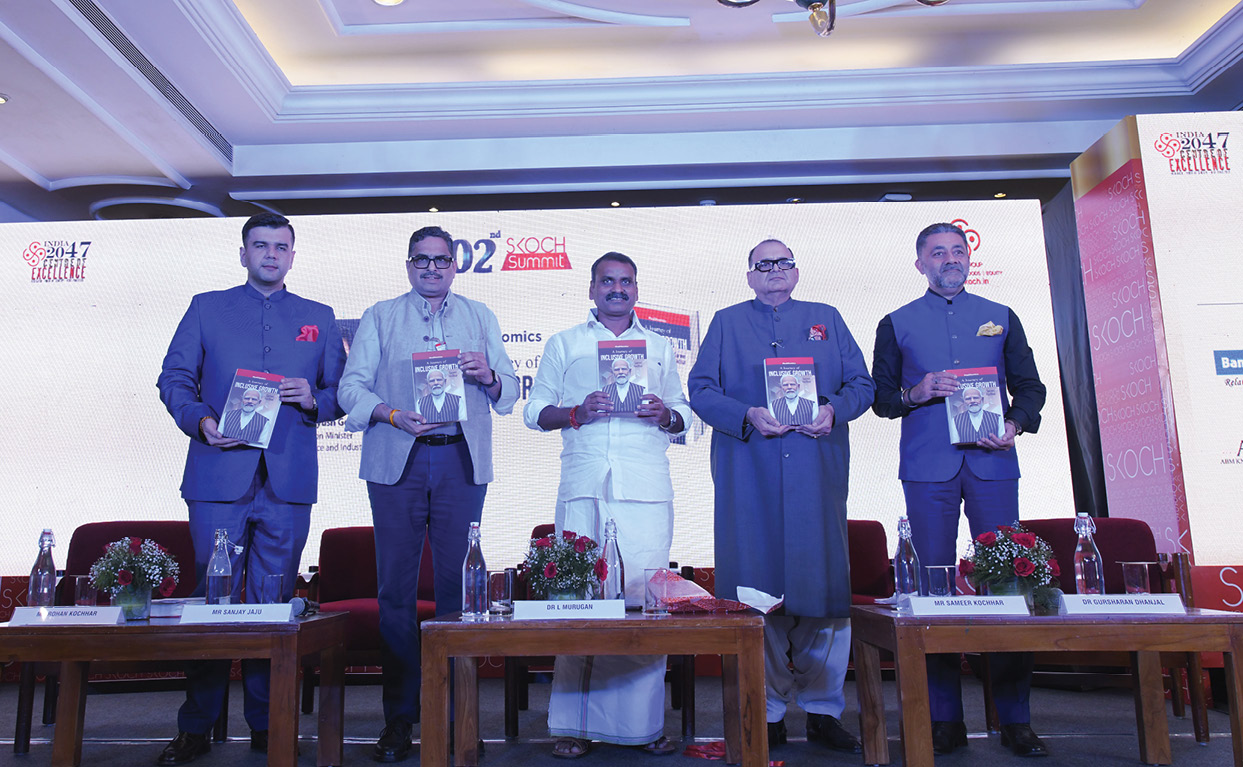Key Points*
- India’s Data-Driven Scale - The digital economy contributes ~11.7% of GDP (2022–23) and is headed toward ~20%, powered by ~900M internet users—making India a top global data generator.
- Data Sovereignty = Public Interest – Treat data as a national asset governed by Indian legal and security frameworks to ensure accountability, privacy, and protection.
- Cybersecurity Is National Security – Frequent, multidimensional cyber incidents demand a core national-security posture to safeguard citizens, commerce, and state capacity.
- Data for Development & AI Upside – Well-governed digital assets fuel digital public goods and AI; accelerated AI adoption could add hundreds of billions to GDP by 2035.
- Close the Governance Gap – The DPDP Act (2023) is a major step, but uneven state/subnational capacity and iterative rulemaking must be strengthened for equitable protection.
- Quantum Readiness Is Urgent – Quantum threatens today’s cryptography while enabling breakthroughs; align to emerging post-quantum standards and implement ministry roadmaps.
- National Quantum Mission → Real Capacity – Convert multi-year, multi-thousand-crore funding into talent, labs, supply chains, and industry adoption—not just strategy on paper.
- Digital Trade with Policy Space – Calibrate cross-border data flow and localization clauses in trade deals to expand business while preserving sovereign regulatory flexibility.
- Build a Tech Stronghold – Protect critical assets and infrastructure at home while competing globally—win the “battle of ecosystems” through innovation and resilience.
- Whole-of-Nation Coordination to 2047 – Tighten coherence across ministries, industry, and universities; nurture and retain talent to sustain momentum toward an inclusive India 2047.
* This content is AI generated. It is suggested to read the full transcript for any furthur clarity.
Transcript
Honorable guests, colleagues and friends, good afternoon. It's a privilege to open this important session on digital assets of India’s sovereignty and security.
Let me begin with two very simple realities. First, India's digital economy is already large and growing fast. It contributed roughly 11.7% of our national income in 2022–23. And it's projected to approach one fifth of the national income within the next few years.
Second, India's online population is enormous. Nearly 900 million active internet users and rising. Which means that India is not just a large market. We are one of the world's biggest generators of data.
So if we start to look at data as a national asset, then data sovereignty is a policy expression that we must understand. At its simplest, it means that the data generated by us, as citizens, by our infrastructure and by our economy is subject to Indian legal and security frameworks so that we can ensure accountability, privacy, protection for these assets even in a highly interconnected world.
That brings us to the question of national security. Cyber incidents are not hypothetical, they're multidimensional and frequent. Our authorities have reported millions of cybersecurity incidents in recent years, underscoring a serious threat to our public safety, to commercial continuity and sovereign decision making. Cyber posture therefore has to be treated as a core aspect of our national security policies.
Beyond security, good data management is also an aspect of development policy. Data fuels digital public goods, drives AI and analytics, multiplies productivity across sectors. NITI Aayog's recent work shows that accelerated AI adoption could add hundreds of billions of dollars to India's GDP by 2035. But that upside is only going to be possible on high-quality, well-governed digital assets and institutions that steward that responsibility well.
While India is a fast-growing digital economy, we still have a lot of catching up to do on the policy and government side. Our legal architecture for personal data, that's the DPDP Act of 2023—all of us are familiar with it—it's a major step forward, but implementation and rulemaking have been iterative. At the same time, an independent analysis shows that gaps across state and subnational capacities in how digital governance translates into everyday protections for everyday citizens and businesses still requires a lot of work. We need to close these gaps if the promise of our digital economy is to be realized equitably and inclusively.
We hear a lot about AI, cybersecurity and blockchain, and rightly so. But today we're going to be focusing on a next-gen inflection that will reshape everything else: quantum technology. Quantum computing threatens some of the current cryptographic primitives while promising transformative advances in sensing, communication, materials. International standards bodies have already started publishing post-quantum cryptography standards and our ministries have also started to publish roadmaps and white papers for prioritizing quantum readiness.
Our National Quantum Mission is a multi-year, multi-thousand-crore initiative, which is an explicit recognition by the government that quantum is strategically important for us as a nation. But turning funding and strategy into actual robust industrial capacity will require focused work.
There are also some trade dimensions that we want to acknowledge. Recent trade agreements and negotiations have begun to include digital trade that touches upon cross-border data flows, localization and digital services. Those provisions obviously offer us an opportunity to expand business growth, but if they're poorly calibrated, they could also constrain a sovereign state's ability to govern data in public interest. As India negotiates with partners, we must be clear about preserving policy flexibility while prioritizing both national interest and innovation.
On that note, I look forward to hearing from our expert perspectives today on the panel and they will drill down into these questions and more and practical recommendations that we can take away from today's celebrations.
So with that, it's my honor to invite Mr. L. Venkata Subramaniam, the Quantum India lead for IBM. Mr. Subramaniam is an experienced leader in AI and quantum computing with a demonstrated history of innovation and product creation. He's a strong researcher who's developed new products, published in top publications and been recognized as a Master Inventor. He has led six products, 338 patents, 150 papers and 3,300 citations.
Thank you Mr. Sharma. Thank you, Mr. Subramaniam. We've got some interesting takeaways today. If I could just sum it up. I think what we're looking at is establishing a tech stronghold of sorts which is both internal-facing and external—where we look to protect our assets, our infrastructure, our economy while also contributing more meaningfully and more robustly to external international markets.
The comment on what Mr. Ansharaji called the battle of ecosystems—how do we stay ahead of the curve there while also being able to protect what is ours? To quote Mr. Subramaniam … “we here in Delhi like to put a positive spin on anything.” And now I feel put on the spot because I had a lovely little closure tied up there. And I don't know if I can go ahead with that.
But I do want to say that our government's initiatives like the National Quantum Mission and our growing private sector and research ecosystems do show that we have the ambition—what you call the aspiration gap. We do have the ambition, we do have the raw ingredients to be able to build that ecosystem.
And maybe what we need now is a little bit of more robust coherence across ministries, across industry, across our universities where we nurture that talent, we capture it early and we put it to use in the right direction so that we are able to preserve the momentum we've already established, persevere and progress and move towards an inclusive India 2047.
And with that I'll close. Thank you. Thank you so much everyone. Thank you.

